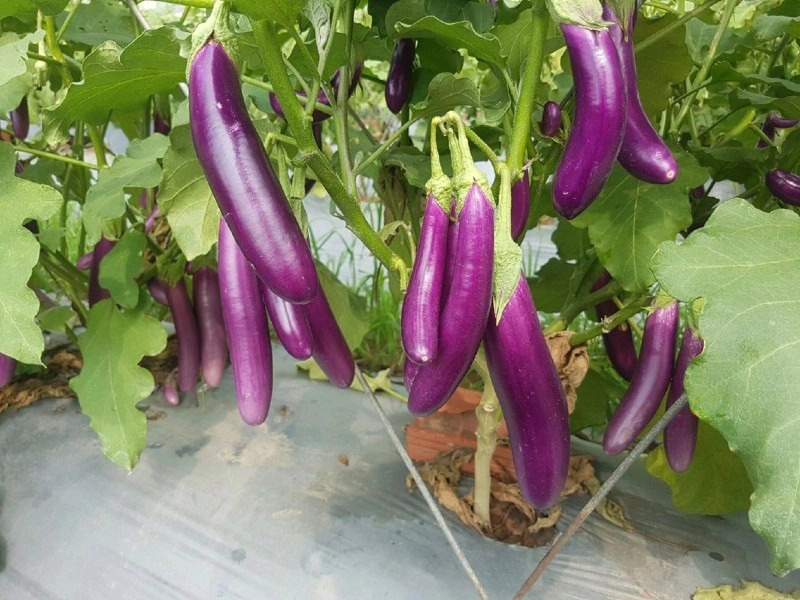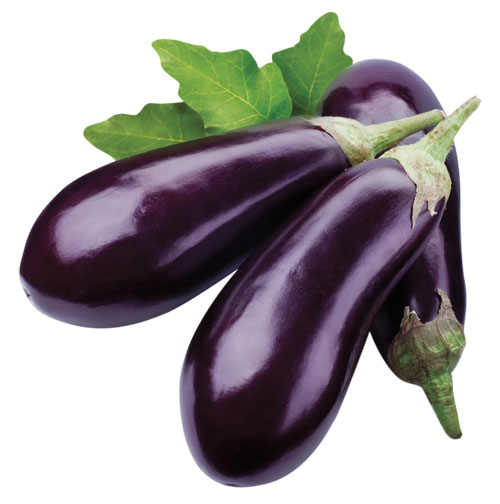
Eggplant, a familiar vegetable in Vietnamese meals, is not only a nutritious ingredient but also a deeply ingrained part of the country’s culinary culture. Let’s delve deeper into this special fruit, from its origins, nutritional value, delicious dishes, to its export potential.
1. Origins and Growing Regions
Eggplant (Solanum melongena) originated in India and tropical Asia. From there, it was introduced and thrived in many countries, including Vietnam. In Vietnam, eggplants is widely cultivated across the country, from North to South, thanks to the favorable tropical humid climate.
Major and well-known eggplants growing regions include:
- Red River Delta: Provinces like Hung Yen, Hai Duong, and Thai Binh are large eggplants cultivation areas, supplying significant output to the Northern market.
- Central Vietnam: Thanh Hoa, Nghe An, and Quang Nam also have considerable eggplants acreage, serving local consumption and surrounding areas.
- Mekong Delta: Provinces such as Dong Thap, An Giang, and Can Tho have ideal soil and climate conditions for year-round eggplant growth, providing large quantities for the Southern market and export.
Vietnamese eggplant comes in many varieties, from long eggplants, round eggplants, to mini eggplants, each with distinct flavors and textures, suitable for different dishes.

2. Nutritional Value
Eggplant is a low-calorie yet nutrient-rich vegetable, offering numerous health benefits. In 100g of fresh eggplant, you can find:
- Fiber: Eggplant is rich in fiber, which aids digestion, prevents constipation, and helps maintain a feeling of fullness, beneficial for weight management.
- Vitamins and Minerals:
- Vitamin C: A powerful antioxidant that helps boost the immune system.
- Vitamin K: Important for blood clotting and bone health.
- Vitamin B6: Involved in energy metabolism and brain function.
- Folate: Essential for cell development and DNA synthesis.
- Manganese: A vital mineral for metabolism and antioxidant processes.
- Potassium: Helps regulate blood pressure and maintain cardiovascular function.
- Antioxidants: Eggplants is particularly rich in antioxidants like anthocyanins (especially nasunin in the skin), which help protect cells from damage by free radicals, reducing the risk of chronic diseases such as heart disease and cancer.
- Low in calories and fat: Eggplants is an excellent choice for those on a diet or aiming to maintain a healthy weight.
3. Dishes Made from Eggplant
With its distinctive flavor and versatility in combining with various ingredients, eggplant has become a familiar and beloved ingredient in Vietnamese cuisine. There are countless delicious dishes made from eggplant, ranging from simple to elaborate:
- Stir-fried eggplants with garlic: A simple, quick, yet incredibly appealing dish that preserves the natural flavor of eggplants.
- Grilled eggplant with scallion oil: Softly grilled eggplants, fragrant with green onions and pork cracklings, often served with sweet and sour fish sauce.
- Braised eggplant with tofu: A light yet nutritious vegetarian dish, often cooked with tofu, mushrooms, and various herbs.
- Eggplant soup: Eggplant can be cooked in soup with shrimp, minced meat, or pork bones, offering a naturally sweet and easy-to-eat flavor.
- Crispy fried eggplant: A crispy exterior with a soft, moist interior, making for an appealing snack or appetizer.
- Braised eggplant with pork belly: A rich, savory braised dish that pairs perfectly with rice.
- Stuffed eggplant with meat: Eggplants are hollowed out, filled with a mixture of minced meat and wood ear mushrooms, then fried or steamed, and finally simmered in a sauce.
4. Export Market
With stable production and good quality, Vietnamese eggplant increasingly shows its potential in the export market. Currently, Vietnamese eggplants has been exported to demanding markets such as Japan, South Korea, and some European countries.
To further boost exports, the following factors need to be emphasized:
- Enhancing product quality: Implementing sustainable farming standards and ensuring food safety (VietGAP, GlobalGAP) to meet the requirements of importing markets.
- Diversifying products: In addition to fresh eggplant, research can be done on processing eggplants products such as dried eggplants, frozen eggplants, or ready-to-eat processed products to increase added value.
- Brand building: Promoting the image of Vietnamese eggplants in the international market, highlighting its quality and freshness.
- Market expansion: Seeking new partners and participating in international trade fairs to access more potential markets.
Other articles:
Other agricultural products:


